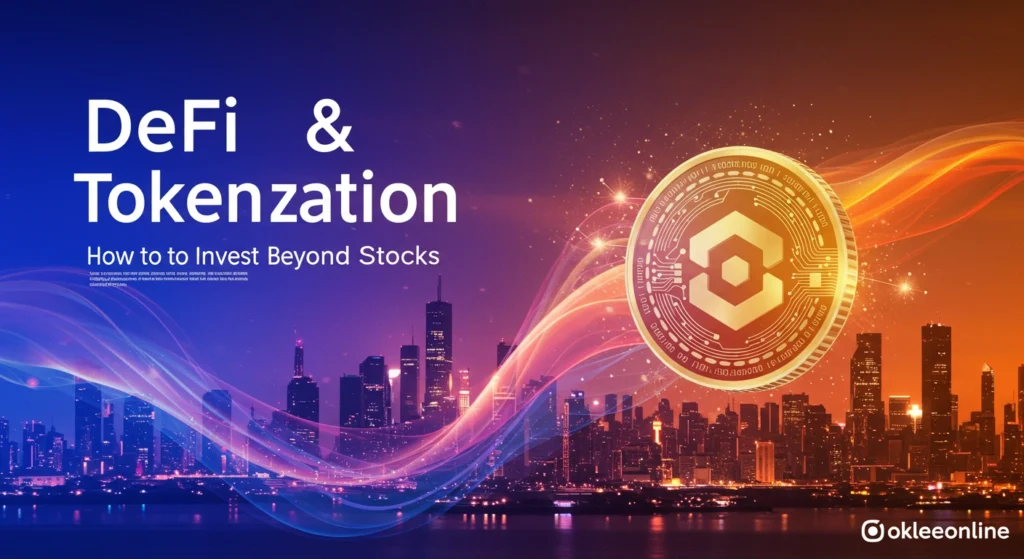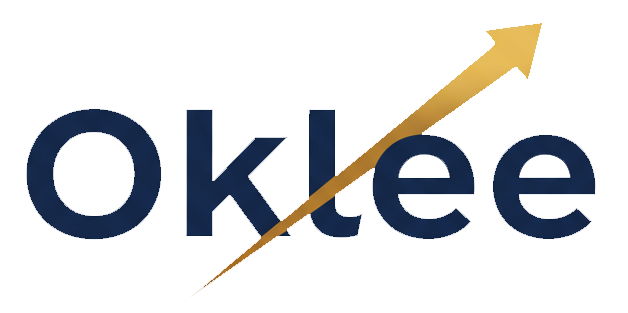Most investors stick with stocks, bonds, or ETFs. But there’s a new world of opportunity growing fast—DeFi (Decentralized Finance) and asset tokenization. In 2025, these technologies are letting everyday investors put their money into things that used to be out of reach: commercial buildings, rare art, startups—even farmland.
This guide breaks it all down. What tokenization means, how DeFi platforms work, and which ones to consider if you want to invest beyond the stock market.
What Is DeFi?
DeFi stands for Decentralized Finance—financial services built on blockchain technology, without traditional banks or intermediaries.
Through DeFi, you can:
- Lend or borrow assets without a bank
- Earn interest (known as “staking”)
- Trade assets instantly, globally
- Invest in tokenized real-world assets
It’s transparent, borderless, and open 24/7. And in 2025, it’s much more mature than the hype-driven days of 2021–2022.
What Is Asset Tokenization?
Asset tokenization means taking something with value—like a building, company share, piece of art, or bottle of vintage wine—and turning it into a digital token on a blockchain.
Each token represents a fractional share of the asset. Investors can buy, sell, or trade these tokens just like stocks—but without the friction of traditional systems.
Real Examples:
- A $10 million property tokenized into 10,000 units at $1,000 each
- A rare painting turned into 1,000 tokens on a fractional investing platform
- A private company offering equity to global investors through security tokens
Why This Matters
In traditional finance, most alternative assets were illiquid and limited to the wealthy. Tokenization changes that.
Benefits:
✅ Fractional access – Buy $100 of a $1M asset
✅ Liquidity – Trade tokens on secondary markets
✅ Global access – Invest across borders, 24/7
✅ Transparency – Smart contracts manage everything openly
This is where DeFi and tokenization overlap—creating real opportunities for regular investors.
Where to Start: Popular DeFi & Tokenization Platforms
Here are some platforms making it possible to invest beyond stocks using DeFi and tokenized assets.
1. RealT (real estate investing)
- Tokenizes rental properties in the U.S.
- Earn daily rent via stablecoins like USDC
- Fully compliant and easy to use
Great for: Long-term income seekers who want real estate exposure without owning physical property.
2. GrowPocket.com (multi-asset fractional investing)
- Offers fractional access to real estate, startups, collectibles, and commodities
- Combines DeFi yield farming with tokenized investment pools
- Strong education tools for new investors
Great for: Anyone exploring diversified alternatives on one dashboard.
3. FinancePathways.com (investor-focused token research)
- Research engine for tokenized investments and DeFi projects
- Offers risk scores, APY comparisons, and asset breakdowns
- Integrates wallet support and personalized watchlists
Great for: Data-driven investors looking to dig deep before committing capital.
4. Maple Finance / Goldfinch (DeFi lending)
- Connects investors with real-world businesses seeking capital
- Loans are tokenized and yield-bearing
- Transparency on where your money goes
Great for: Fixed-income investors tired of 1–2% savings accounts.
5. ReFi Platforms (Regenerative Finance)
ReFi platforms combine climate impact + financial returns. You can invest in:
- Tokenized carbon credits
- Sustainable agriculture
- Climate-positive projects
Examples include Toucan Protocol, Celo, and KlimaDAO.
Great for: Sustainable finance fans looking to align money with environmental impact.
Use Cases: What You Can Invest In
With tokenization, you’re not limited to crypto. You can now invest in:
| Asset Type | Example Platforms | Tokenized Benefit |
|---|---|---|
| Real Estate | RealT, Lofty | Fractional ownership + rent |
| Fine Art | Masterworks, Artex | Own pieces of famous art |
| Farmland | FarmTogether, AcreTrader | Passive crop-based income |
| Private Equity | Securitize, tZero | Early access to startups |
| Commodities | Paxos, Goldfinch | Tokenized gold, oil |
| Green Projects | ReFi, Toucan, Flowcarbon | Climate-aligned investing |
Risks to Know Before You Dive In
Tokenized investing is exciting—but not risk-free.
⚠ Regulatory Uncertainty
Many governments are still figuring out how to regulate DeFi and tokenized securities. Some tokens may be deemed illegal or require licenses to trade.
⚠ Platform Risk
Unlike banks, DeFi platforms don’t offer FDIC protection. If a smart contract has a bug—or the company behind it fails—you could lose funds.
⚠ Illiquidity
Not all tokens can be easily sold. Some markets have thin volume or lock-up periods.
⚠ Volatility
Many tokens (especially newer ones) can see sharp price swings.
Always research the project, the underlying asset, and the platform’s security features.
How to Get Started
If you’re new to DeFi and tokenized investing:
- Create a crypto wallet (e.g., MetaMask, Trust Wallet)
- Buy stablecoins (like USDC or DAI) to fund your investments
- Pick a platform that supports the assets you want (RealT for real estate, GrowPocket for variety)
- Start small—test a few token purchases before committing more capital
- Track performance and review reports via DeFi dashboards
The Future of Fractional Investing
By 2030, experts believe 10–15% of global assets may be tokenized. This means:
- Faster capital markets
- More inclusive investing
- Borderless fundraising
- Better transparency and liquidity
Tokenization isn’t about replacing stocks—it’s about expanding access to everything else that was once locked away from retail investors.

Final Thoughts
The future of finance isn’t just digital—it’s decentralized and tokenized. DeFi platforms and asset tokenization give everyday investors the chance to diversify into real-world assets, participate in fractional investing, and explore markets beyond Wall Street.
Just like any investment, do your homework. Look past the hype. Understand what you’re buying. And always manage your risk.
Want more DeFi content like this?
Subscribe to the newsletter at oklee.online for weekly guides on tokenized investing, crypto yields, and smart ways to grow wealth outside the stock market.



